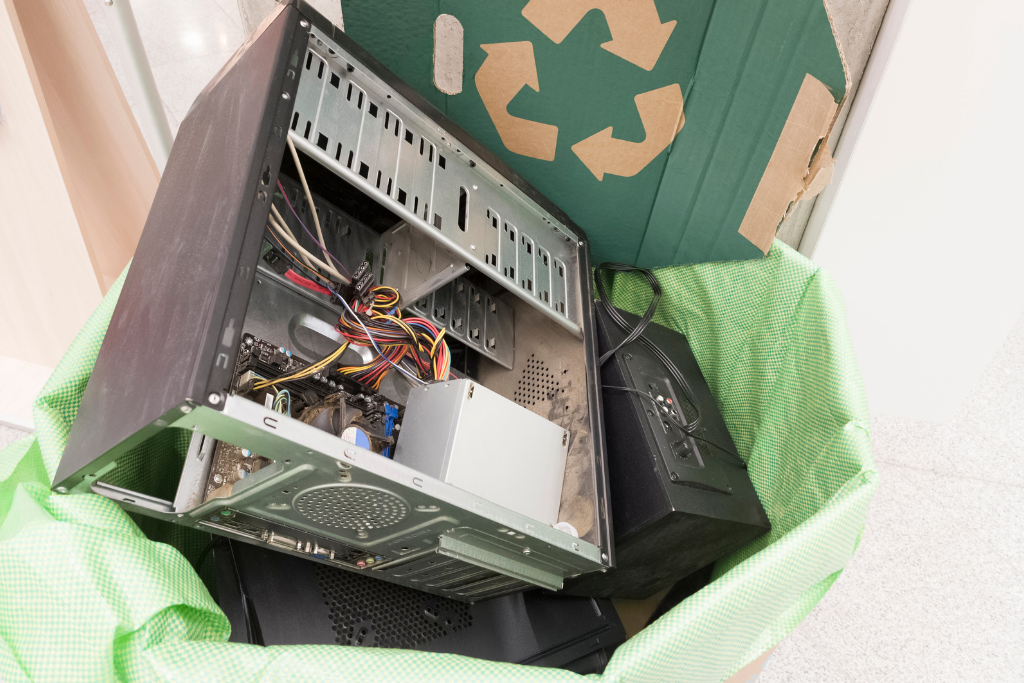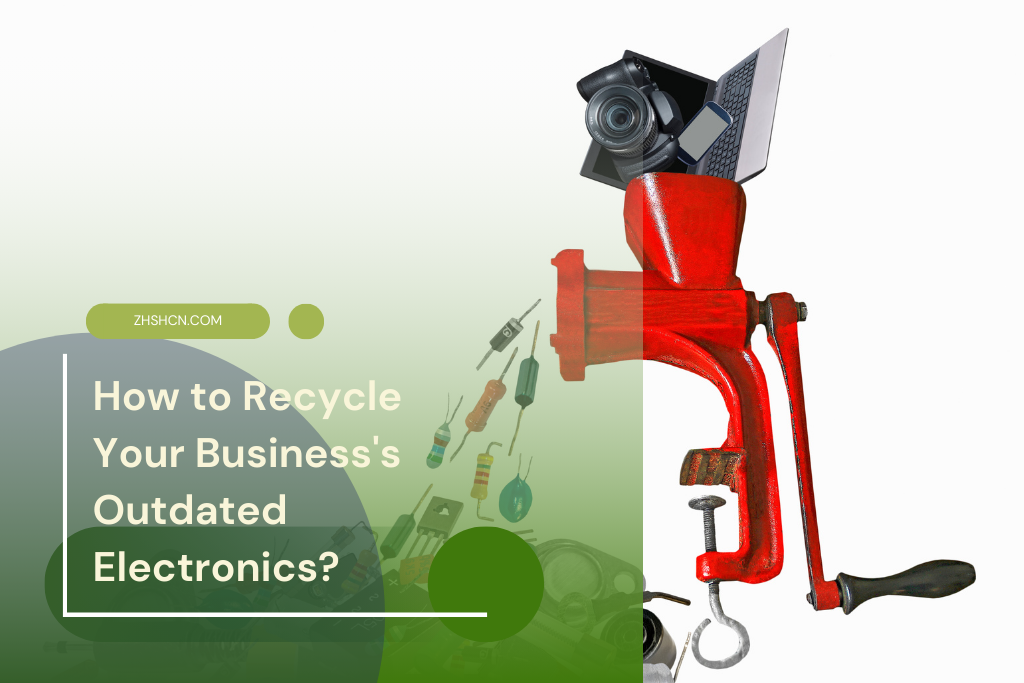Over two decades in the recycling and scrap industry, I’ve witnessed the monumental shift towards electronic waste. The modern business landscape is dotted with myriad electronic devices, from servers humming in the background to smartphones buzzing with notifications. But as time passes, these gadgets become antiquated, paving the way for a conundrum – what should we do with these outdated electronics? Drawing from real-world experiences, this guide will steer you through the process, ensuring environmental responsibility, data security, and efficient cost management.
Key Takeaways:
- Conducting a thorough inventory is crucial to understanding your electronics’ scale.
- Prioritize data security with meticulous backups and erasures.
- Reusing outdated electronics internally can maximize their lifespan.
- Donations can breathe new life into old electronics.
- Collaborate with certified e-waste recyclers for responsible recycling.
- Manufacturer take-back programs often offer easy electronic recycling avenues.
- Always adhere to regulations regarding e-waste.
- Documentation safeguards compliance and accountability.
- Educating employees ensures collective responsibility in electronic disposal.
Assessment and Inventory
Huge technological strides mean constant updates; before you realize it, you’re left with a heap of outdated electronics. The first step in managing them? Understand what you have.
Table: Common Business Electronics and Their Lifespans
| Device | Average Lifespan |
|---|---|
| Computers | 3-5 years |
| Monitors | 5-7 years |
| Smartphones | 2-3 years |
Ensuring Data Security
We’re living in the age of data. Ensuring data doesn’t fall into the wrong hands is paramount.

Data Backup and Erasure
Before you think of parting with any device, it’s essential to back up vital data and then scrub it from the device.
Data Destruction Services
When standard deletion doesn’t suffice, especially for confidential data, professional data destruction services guarantee complete data annihilation.
Harnessing Reuse Potential
Just because a gadget is old doesn’t render it useless. Before looking externally, see how these devices can be repurposed within your organization.
Donations: Making a Difference
Functional electronics can find renewed purpose through donations, aiding institutions like schools and NGOs while reducing e-waste.
Recycling: The Eco-Friendly Route
Recycling Programs
Local governments and tech retailers often have recycling programs, offering responsible disposal routes for outdated electronics.
Certified E-Waste Recyclers
These professionals ensure electronic waste is dealt with responsibly. They recover valuable materials while managing hazardous substances aptly.
Manufacturer or Retailer Take-Back Programs
Many brands offer recycling solutions for their products, presenting a straightforward option for eco-friendly disposal.
Navigating the Legal Maze
Every country, and often regions within them, has specific regulations surrounding e-waste disposal. Familiarize yourself with them to avoid legal complications.
Documentation: The Unsung Hero
Maintaining records of electronic disposals, especially when involving third-party services, offers accountability and aids in compliance.
Investing in a Green Future
While managing old electronics is crucial, so is thinking about future purchases. Prioritize sustainable and eco-friendly electronics.

Cultivating a Responsible Culture
It’s not just about management. Your entire team should be aligned with the company’s vision of responsible e-waste disposal.
Frequently Asked Questions:
- What environmental hazards arise from improper electronic disposal?
- Electronics contain materials harmful to the environment. Improper disposal can result in these chemicals leaching into soil and water sources.
- How can recycling electronics benefit my business?
- Besides environmental benefits, it can bolster your company’s public image and even offer cost savings in some cases.
- Is merely deleting data enough?
- Standard deletion can leave data remnants. Professional data destruction services are recommended for utmost security, especially sensitive data.
In conclusion, outdated electronics present businesses with both challenges and opportunities. Adopting the strategies outlined ensures that your organization’s electronic disposal practices are efficient, environmentally conscious, and secure.
